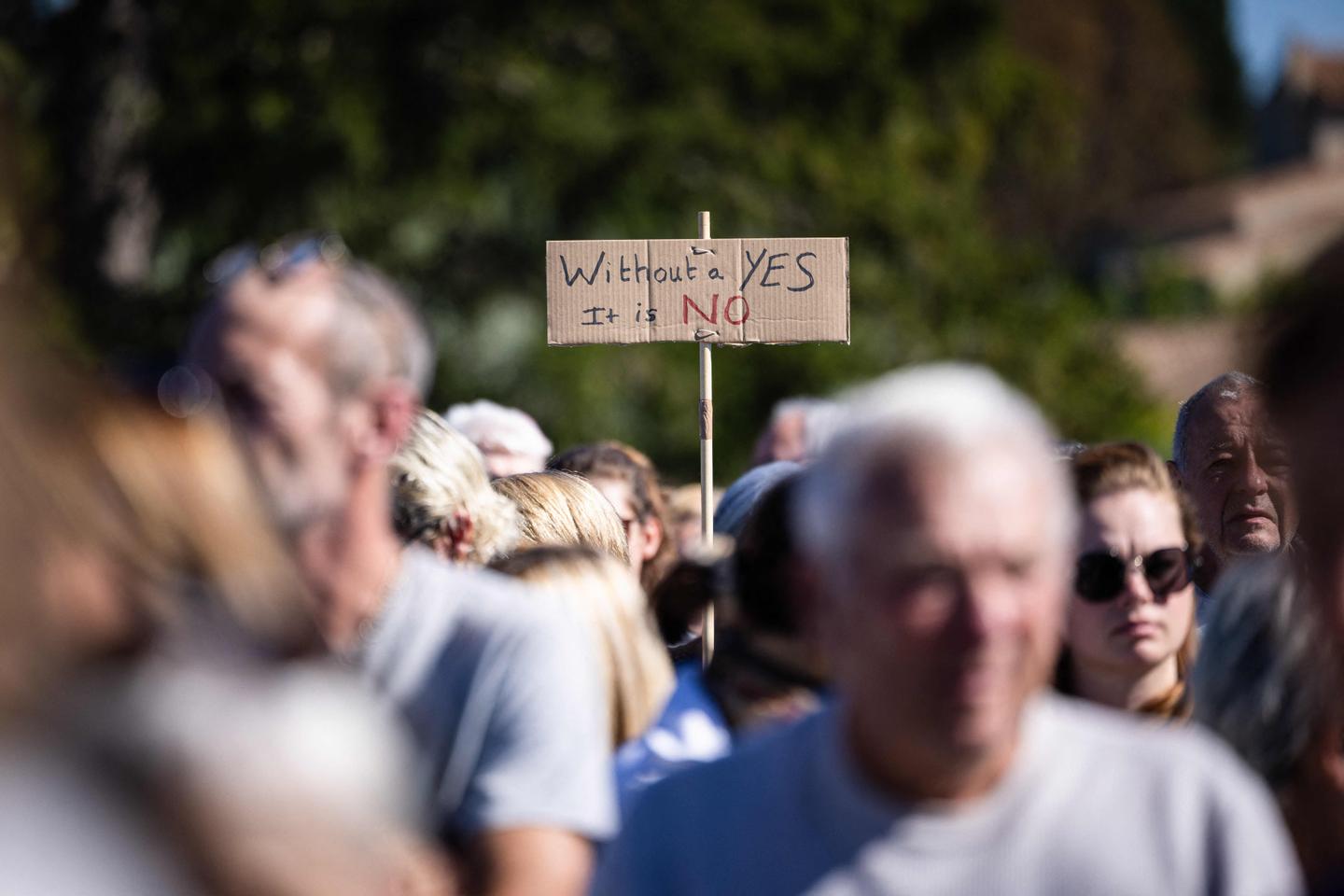


Not all crimes have the same political echo. As this autumn's news has shown, the public impact of these tragic events obeys a partly irrational alchemy. The horrific murder in September of a Parisian student, Philippine, in which a Moroccan national already convicted of rape and subject to an order to leave the French territory (OQTF) was suspected, immediately gave rise to several debates within the French political establishment, focussing on immigration and recidivism. The tragedy was so shocking that the Assemblée Nationale observed a minute's silence on October 1.
Nothing of the sort for the mass rape trial taking place in Southern France. Since it started one month ago, it has been detailing the ordeal endured by Gisèle Pelicot, raped by her ex-husband and more than 50 men when she was drugged. Political leaders have been in general silent on this equally shocking and frightening story, making few comments and apparently in no hurry to draw any lessons or proposals from it. This is despite the media attention generated by this case and despite the public's interest in what is happening inside the criminal court.
According to an Ifop poll published on Thursday, October 3 (based on a small sample of 1,000 people), more than eight out of 10 French people have heard of this trial and nearly three-quarters believe it demonstrates "the permanence and trivialization of sexual violence in our society." This reinforces the idea that the trial represents a turning point in raising awareness of this reality.
Silence of 'good fathers'
Not all political figures have remained silent on the subject. The usual voices, committed to the fight against physical sexual violence, spoke out, with their nuances, to remind us of the prevalence of a phenomenon that affected 247,000 people in 2021 according to the latest survey from the Interior Ministry's statistical service. The vast majority of these voices were that of women, like the vast majority of victims of this violence, 88% according to the same survey.
Added to these are the words of a few male politicians, such as former president François Hollande ("We are all concerned") and Raphaël Glucksmann ("This is not simply a tawdry news item, but a social fact"), and a few political organizations: The Parti Socialiste, the French Communist Party and the Greens have all issued statements on the subject. Elsewhere, silence has prevailed, particularly on the right and in the center, in the long list of contenders for the 2027 presidential election. The new government has also been slow to react. The Secretary of State for Equality Salima Saa only promised on October 4 to announce a "battle plan" against sexual violence at the end of November.
You have 44.08% of this article left to read. The rest is for subscribers only.
